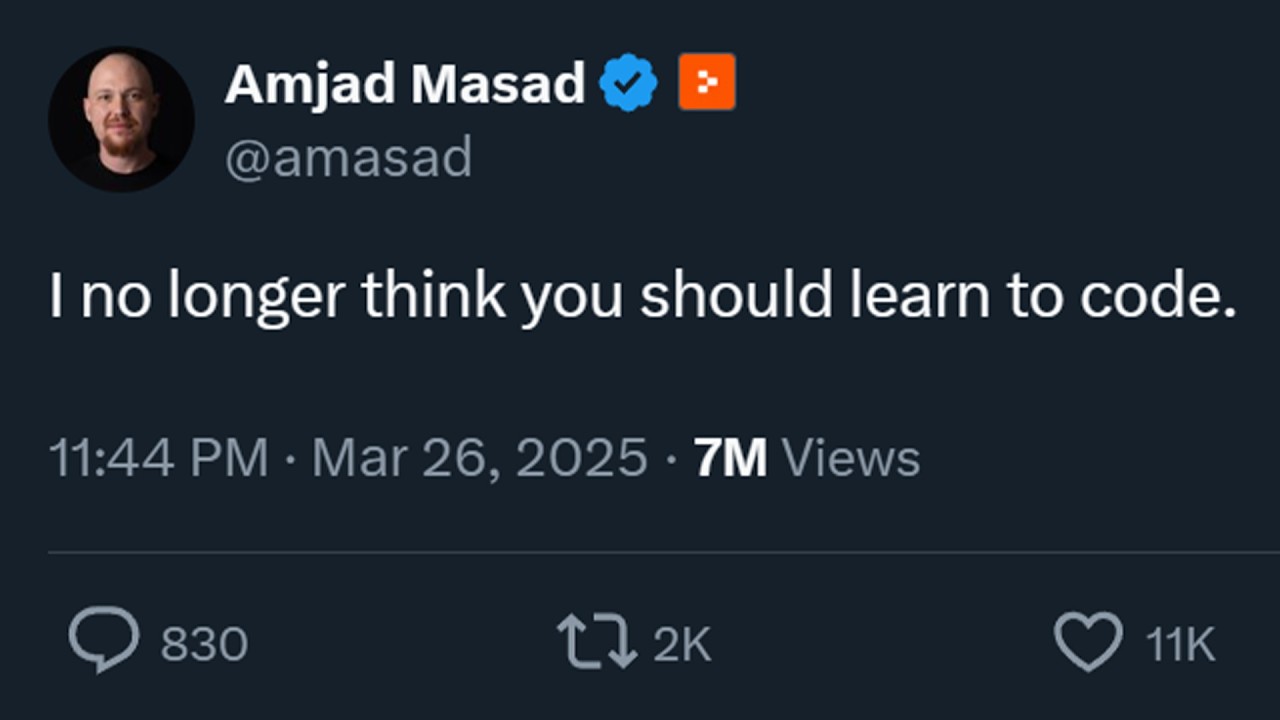Amjad Masad, CEO of Replit, sparked debate by suggesting that people should focus on critical thinking and problem-solving rather than learning to code, as AI may soon handle most coding tasks. Critics argue this contradicts Replit’s hiring of software engineers, highlighting the ongoing need for human expertise in understanding software concepts and debugging, even as programming evolves towards greater abstraction.
In a recent discussion, Amjad Masad, the CEO of AI company Replit, sparked controversy with his statement that people should no longer learn to code. This tweet gained significant traction, amassing millions of views and interactions. Masad emphasized the importance of learning to think critically, break down problems, and communicate effectively rather than focusing solely on coding skills. This perspective aligns with a broader sentiment shared by various AI leaders, suggesting that the future of programming may not require traditional coding knowledge.
Critics of Masad’s statement point out the apparent contradiction in his position, as Replit is actively hiring software engineers. This raises questions about the future job security of these engineers if coding becomes obsolete. The discussion echoes previous claims made by other AI executives, such as the CEO of Anthropic, who predicted that AI would soon handle the majority of coding tasks. However, many argue that while AI can assist in coding, the need for skilled software engineers remains crucial for understanding the underlying infrastructure and debugging processes.
Masad later clarified his stance, acknowledging that while understanding software structure is important, one does not necessarily need to know intricate details, such as the nature of null in JavaScript. This suggests that while coding knowledge may not be essential, a foundational understanding of software concepts is still valuable. The conversation highlights the evolving nature of programming, where AI tools can assist developers but do not entirely replace the need for human expertise.
The discussion also delves into the concept of abstraction in programming languages. As technology advances, programming languages have evolved to become more user-friendly, moving from low-level machine code to higher-level languages that are easier for humans to understand. Masad’s assertion that coding may eventually be replaced by plain human language reflects this trend toward greater abstraction, where the complexities of coding are hidden behind simpler interfaces.
Ultimately, the future of programming remains uncertain. While AI is likely to play an increasingly significant role in coding, the extent to which it will replace traditional programming skills is still up for debate. The conversation raises important questions about the balance between leveraging AI for efficiency and maintaining a foundational understanding of coding principles to ensure effective problem-solving and debugging in software development.
